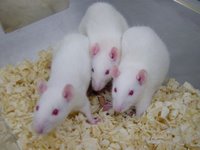
There is a trend amongst scholars in sociology and gender sciences to argue that more or less everything is social constructions. Relationships and roles in the society are constructed by humans in our conversations. Hence, they argue, there are almost no universal behaviors. Anthropologists writing about strange habits in different societies are often cited to show that there is great variability between people living in different places, and indeed there is. However, it is often overlooked that there are many similarities between different cultures as well. I argue that even though there are many differences between people in different societies that stand out, there are also many, more fundamental, behaviors which do not vary between different cultures. These behaviors seem so natural to us that we barely notice them...
Take beauty for instance. Is it true that beauty is in the eye of the beholder? Research suggests not! People from cultures all around the globe agree on what faces are beautiful and which are not beautiful. For example, symmetrical faces are seen as more attractive than non-symmetrical faces. Similarly, around the globe a 0.7 and 0.9 waist to hip ratio for women and men respectively, is considered the most attractive body shape. Preferences for the amount of fat on the body varies between cultures. In starving countries in Africa "wider" ladies are generally preferred whereas in western cultures almost anorectic women are seen as very attractive, but consistently it is found that people prefer 0.7 and 0.9 waist to hip ratios. We can do even better than this. For example, have you seen someone who becomes happy when faced with misfortune and sad when life is good? Have you heard of a society where there is neither love nor hate?
Comparing humans to other species can show us how similar we really are as a species. The dung fly know no better place for mating than a new, fresh, rich in nutrients pile of dung. What do you imagine dung smells like for a dung fly? Probably it is equivalent to when we smell our partners perfume or a bed of roses. I don´t think there is any woman who would prefer to pop out her baby into a pile of dung, but why not? I hope it is clear by now that humans, even though we differ in many respects, are fundamentally very similar to each other. Any two humans will differ only marginally in their DNA sequence, and this similarity has a correspondence in the phenotype of the host. Put more simply, all humans share most of their DNA and therefore we are very similar in the most fundamental respects.
As I have argued before I think it is better to recognise that we have some instincts and then figure out the best way to deal with these, than to say that we have no instincts or innate behavioral patterns because we want it to be true. "Go save the world, but do it using what you know about human nature"...
If you have not been convinced that our seemingly natural behaviors are in fact not so natural, then take a look at this wonderful citation from William James, one of the founders of psychology.
"On making the natural seem strange...
It takes...a mind debauched by learning to carry the process of making the natural seem strange, so far as to ask for the why of any instinctive human act. To the metaphysician alone can such questions occur as: Why do we smile, when pleased, and not scowl? Why are we unable to talk to a crowd as we talk to a single friend? Why does a particular maiden turn our wits so upsidedown? The common man can only say, Of course we smile, of course our heart palpitates at the sight of the crowd, of course we love the maiden, that beautiful soul clad in that perfect form, so palpably and flagrantly made for all eternity to be loved! And so, probably, does each animal feel about the particular things it tends to do in the presence of particular objects. ... To the lion it is the lioness which is made to be loved; to the bear, the shebear. To the broody hen the notion would probably seem monstrous that there should be a creature in the world to whom a nestful of eggs was not the utterly fascinating and precious and never-to-be-too-much-sat-upon object which it is to her. " (William James, 1890)"














